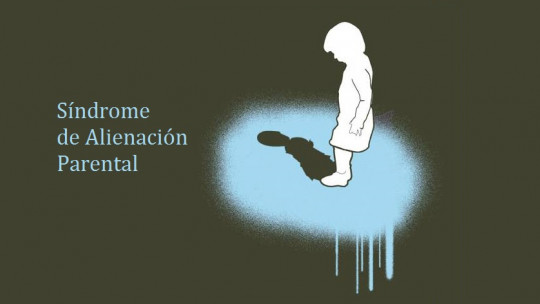As they say, in every home there are problems and conflicts, and what unites a family is its ability to solve them. However, not all problems are of the same magnitude. Sometimes, families do not reach a solution and, on the contrary, the conflict becomes bigger and has worse consequences. Living in a constantly problematic environment can be very dangerous for the proper development of children.
Therefore, when conflicts arise, especially in divorced parents and in whom it is complex to manage child custody, an essential figure appears for a good coexistence. Parental coordinators are purely intended to assist in the resolution and management of problems and conflicts between parents and to collaborate in judicial terms to reach solutions. Ultimately, the primary goal of the parent coordinator is to facilitate the maximum well-being of the children.
In this article, Let’s see what a parental coordinator is to understand in depth its role and its usefulness Childhood is a critical process for good development and adjustment, and a figure like this can save many problems for children who grow up in conflictive environments.
What is a parent coordinator?
To understand in depth what a parental coordinator is, where it comes from and with what objectives, it is important to break down its conceptualization and understand the key responsibilities that this figure has. In simple terms, a parent coordinator is a neutral professional who acts as a mediator between divorced or separated parents, focused on facilitating, above all, effective communication and the set of decisions that can be made regarding the children Its objective is, mainly, to seek the best possible communication and the greatest benefit for the children.
Their primary role involves managing conflict between parents, ensuring that disputes between parents do not result in a prolonged and harmful environment for children. The parental coordinator does not have the intention of replacing parental authority or assuming the care and education of the children, but does seek to establish a constructive collaboration for the good of the family and the functioning of the home. This figure facilitates the implementation of prior agreements and, when necessary, proposes equitable solutions for the issues being discussed
This professional therefore plays an active role in reducing emotional tensions by providing a safe space for all members of the family nucleus to express their concerns and, at the same time, focus on practical solutions for as many problems as possible.
Impartiality is fundamental to the success of the parental coordinator, who must avoid taking sides and work towards the general well-being of the family. In practice, the parent coordinator can intervene in a wide range of areas, from planning parental visitation schedules to resolving disputes over the education and health of children. In addition, she also often acts as a central point of contact, minimizing the need for parents to get in touch when it can lead to tense or even violent situations.
Parental Coordinator Skills and Characteristics
As we have been commenting, the parental coordinator is equipped with a very diverse and, at the same time, concrete background of skills to address any dispute or conflict situation that may arise between parents regarding the care and attention of their children. The success of a parenting coordinator lies in possessing these specific skills and characteristics that allow them to effectively address the emotional and legal complexities of family conflict situations.
1. Neutrality and impartiality
A parent coordinator must always maintain a neutral position, avoiding taking sides in disputes such as for or against any point of view In discussions, the parent coordinator has the role of mediating between parents, and impartiality is essential to gain the trust of both parties and foster a more equitable and respectful environment.
2. Effective communication
As we have been discussing, effective communication, the ability to communicate clearly and efficiently, is crucial. The parent coordinator acts as a communication bridge between both points of view, facilitating the exchange of information and ensuring that the concerns of both parties are fully understood.
3. Empathy and sensitivity
Understanding the emotions and concerns that affect parents and children is essential. Empathy allows the parental coordinator to address conflictive situations with sensitivity, promoting a collaborative work environment The parental coordinator must be empathetic and sensitive to understand the damage that these types of exchanges entail and avoid painful situations in the long term.
4. Conflict resolution skills
The ability to address and resolve disputes effectively is essential. The parent coordinator must employ conflict resolution techniques that encourage mutual agreements and minimize tensions. A good parental coordinator must also be able to prevent possible future conflicts and anticipate them to avoid excessive consequences.
5. Legal and psychological knowledge
A solid understanding of the legal issues related to custody, visitation orders and possible complaints or judicial procedures between parents allows the parental coordinator address the complexities of each case concretely Furthermore, having psychological knowledge helps to maintain the emotional care of the people and families involved.
6. Patience and resistance to stress
The situations that a parenting coordinator faces can be very emotionally intense. Therefore, patience and the ability to manage stress are vital for the proper development of their functions. The parent coordinator You must remain calm and focus on constructive solutions even in challenging circumstances.
##Benefits of parental coordination As we have been commenting, parental coordination not only acts as a communication bridge between parental figures. Furthermore, a good intervention by the parental coordinator generates a series of tangible benefits for all parties involved, especially for the children who are the central focus of attention. Some of these main benefits are:
1. Conflict reduction
One of the most obvious benefits of parental coordination is the reduction of conflicts between parents. By providing a structured channel for communication, the parent coordinator minimizes direct confrontations, creating a more stable environment
2. Improvement in communication
By facilitating effective communication, the Parent Coordinator promotes healthier dialogue between parents. This can lead to clearer agreements and a shared understanding of the children’s needs and desires.
3. Decisions focused on child well-being
Parental coordination focuses decisions on the best interests of the children. Through the intervention of the coordinator, more informed and equitable decisions can be made, taking into account the emotional and physical well-being of the children.
4. Effective implementation of agreements
The parent coordinator plays a crucial role in ensuring the effective implementation of prior agreements. This helps prevent misunderstandings and additional conflicts arising from lack of clarity
5. Support for children’s adaptation
By creating a more stable and collaborative environment, parental coordination facilitates children’s adaptation to new family dynamics. This can reduce the emotional impact and contribute to the healthy development of children.
How to become a parent coordinator?
Becoming a parent coordinator involves a combination of education, training and acquisition of specific skills. Although requirements may vary by jurisdiction and country-specific organizations, there are general steps that those interested in taking on this role typically follow. It is important to assume that, in Spanish law, this figure does not have regularization. However, there are laws that protect this work and that facilitate its implementation. Below, we propose some of the steps to follow to become a parental coordinator:
1. Education and specific training
Most parenting coordinators’ education comes from fields such as psychology, social work, or law. In addition, parent coordinators require specific training in mediation and conflict resolution Many organizations offer certification programs in parental coordination to ensure your suitability for these jobs.
2. Practical experience
The acquisition of practical skills is vital to enter the world of parental coordination work. Before getting your first job, it is advisable to look for internships or supervised work to get to know these environments from an observation and learning point of view.
3. Legal and ethical knowledge
Parenting coordinators must know and understand the laws related to custody, divorce, visitation, and related issues. As parenting coordinators operate within legal and ethical frameworks, they must ensure intervention that is fair, equitable and consistent with each country’s legislature.
4. Continuous update
As in any professional field, parental coordination requires constant updating regarding training in family dynamics and parental legislation Parenting coordinators often participate in professional development programs to stay up to date on best practices and possible legal changes that may exist in the context in which they work.
Conclusions
In conclusion, the parental coordinator emerges as a crucial element in the management of family conflicts after a separation. Its ability to foster communication, reduce tensions and prioritize child well-being highlights its relevance. With specific skills and an approach focused on impartiality, these professionals contribute significantly to building stable family environments. In a constantly changing world, parental coordination stands as an essential tool to preserve harmony and promote healthy relationships in times of transition.









